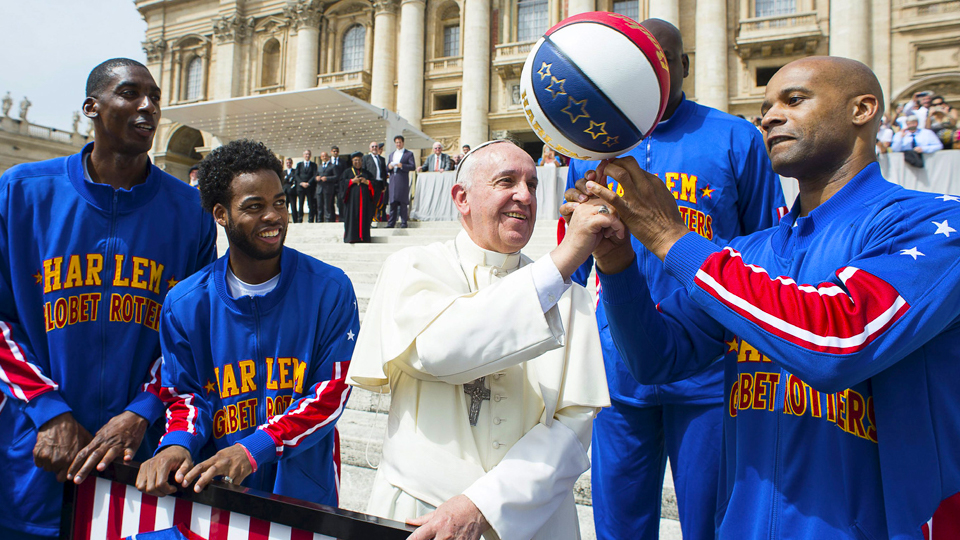SEARCH

1. The Church values sport in itself, as an area of human activity where the virtues of temperance, humility, courage, patience can be fostered and encounters with beauty, goodness, truth and joy can be witnessed. These kind of experiences can be had by people of all nations and communities from around the world irrespective of the standard or level of sport. (p. 13)
2. In the “throwaway culture” of which Pope Francis often reminds us, lasting commitments often scare us. Sport helps us in this regard by teaching that it is worth embracing long-term challenges. (p. 23)
3. [The] dynamic of sport is the opposite of that of war, which takes place when people believe that cooperation is no longer possible and when there is a lack of agreement on fundamental rules. (p. 25)
4. The common experience of sacrifice in sport can also help believers understand more fully their vocation as children of God. Maintaining a life of prayer, a rich sacramental life, and working for the common good, are frequently accompanied by many obstacles and difficulties. We try to overcome these challenges by our steadfast perseverance and self-discipline, with the grace that flows from God. (p. 27)
5. The moments of joy in sport are usually encountered alongside suffering or sacrifices of one sort or another and after great mental and physical effort. This teaches us that true, deep, and lasting joy often emerges when we commit ourselves without reserve to something we love. (p. 28)
6. The intense quality of the experiences in sport is the basis of the force of its attraction. However, because of this intensity sport is also subject to drifting towards policies and practices that do not serve the human person. This applies to participants as well as to spectators and supporters. The great importance of sport for many can degrade it into becoming a vehicle for other interests, for political purposes and demonstrating power, for the blind pursuit of financial profit or nationalist self-assertion. (p. 35)
7. How can the Church begin to integrate physical activity or sports into its own fundamental framework? How can the Church’s vision of sports permeate into the Bishop’s Conferences, Diocese and Parishes? This should perhaps begin with the visible establishment of an apostolate for sports. Such an apostolate will be a concrete manifestation of the Church’s commitment to the human person in sport and will also equip the different organs of the Church to directly initiate sports related activities. (p. 43)
8. The very idea of being “Catholic” goes hand in hand with what is best in the spirit of sports. In the world of sports, the Church can play a significant role by helping to build bridges, open doors and promote common causes - permeating societies like “leaven”. (p. 44)
9. If sport runs the risk of being the occasion to divide a family and to diminish the sanctity of Sunday as a holy day to uphold, it also can help integrate a family with other families in the celebration of Sunday, not only in the liturgy but in the life of the community. This does not mean that sport matches should not take place on Sundays, but rather, such events must not excuse families from attending Mass and should also promote the life of the family within the community. (p. 45)
10. Any genuine human reality is definitely bound to be reflected within the Church. The Church should always be abreast of the sporting world, reading the signs of the times in the field of sports. Priests should be encouraged to be reasonably knowledgeable about contemporary sports realities and trends, especially as they affect youth and to link sports with faith in homilies when it makes sense. (p. 46)To read the full text of the document, click here.